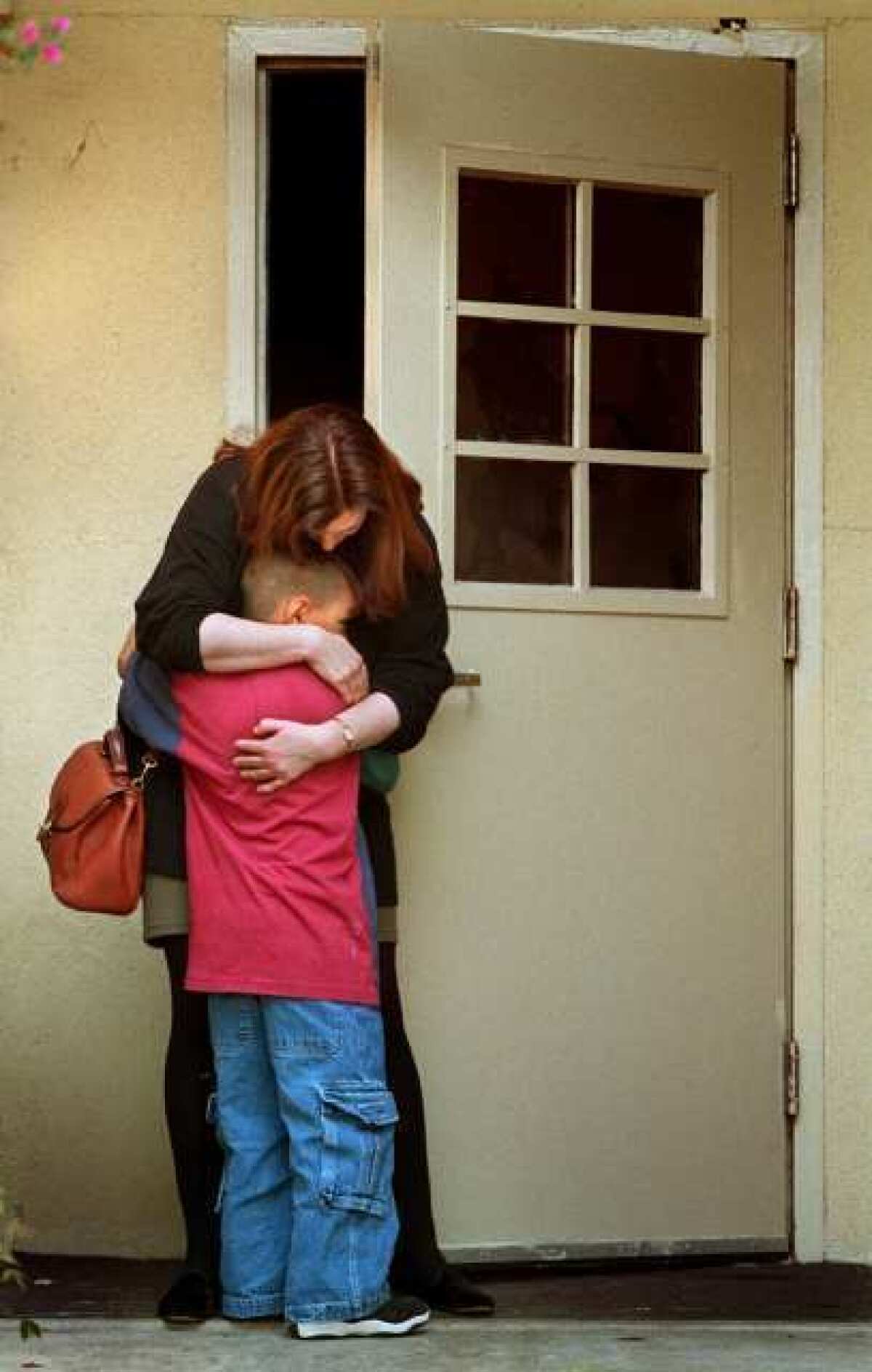For kids with OCD, adding therapy to drugs helps

Children plagued by the repetitive behaviors, irrational fears and intrusive thoughts of Obsessive-Compulsive Disorder often get some relief from widely prescribed antidepressants. But when they also get a form of psychotherapy that teaches them different ways to think about and respond to their fears and compulsions, they get much better, a new study finds.
The study extends a finding to children that already has some traction among adults. The nation’s 2.2 million adult sufferers of OCD have been shown to respond to cognitive behavioral therapy for the disorder. But roughly a third of people with this anxiety disorder are thought to have suffered symptoms in childhood, and there’s not much research on what works best for them.
The study, published this week in the Journal of the American Medical Assn. (JAMA), divided into three groups 124 children who had a diagnosis of OCD and who were between the ages of 7 and 17. All the subjects had already been prescribed an antidepressant in the class of medications called selective serotonin reuptake inhibitors, or SSRI [registration required], and had seen some improvement of symptoms with the medications.
One group continued on those medications with no additional treatment. In the second group, psychiatrists who prescribed the medication saw the child seven times over 12 weeks for about 45 minutes each. In addition to checking the child’s response to medications, the psychiatrist offered brief instructions on cognitive behavioral therapy, a checklist of problematic behaviors and responses to practice at home. Two “brief telephone check-ins” by the physician were used to review the instructions. This arm of the trial was designed to approximate a treatment plan “that could feasibly be implemented by psychiatrists in clinical practice settings that typically do not allow for long sessions,” the authors wrote.
The third group of kids got 14 hourlong sessions conducted over 12 weeks with a clinical psychologist, who conducted a standardized cognitive behavioral therapy treatment for OCD. In that form of therapy, four sessions are spent identifying the rituals and obsessive thoughts and challenging the patients’ thinking and assumptions about those eight sessions follow in which the therapist gradually exposes the patient to the objects of her fears and teaches new responses to the thoughts and external triggers that set off the rituals. In the final two sessions, patient and therapist relate the lessons to unfamiliar places or future challenges, and plan ways to prevent relapses.
After 12 weeks, kids in all groups were showing fewer OCD symptoms on average. The drugs-only group saw small improvements over where they started. And those who got brief instructions from a psychiatrist were doing a little better, but the statistical differences between the two groups’ levels of improvement was so slight that researchers could not conclude that brief instructions in cognitive behavioral therapy conferred any benefit at all.
The kids who got 14 sessions of cognitive behavioral therapy, however, saw significant reductions in their symptoms: By one standardized measure, the severity of their OCD symptoms declined 58% more than those of kids who got medications only.
Clinical psychologist Mary Alvord of Rockville, Md., who was not involved in the current study, called it “important.” While she said the usefulness of the technique even for young children has been borne out in her practice, the study released this week “provides further support.”
“Children and teens do best when they are gradually exposed to their fears with trained clinicians,” Alvord said. “Medications help with the biological aspects. But [cognitive behavioral therapy] gives children and teens the skills and strategies to combat OCD over a lifetime,” she said.
For an anxious child, whose coping rituals have taken on a life of their own and reinforced the fears they were meant to dispel, such therapy offers a chance to regain control, Alvord said.
“It’s empowering to know that you can effect change in a potentially disabling disorder through facing your fears and preventing the rituals with the guidance of a trained professional,” Alvord said.




